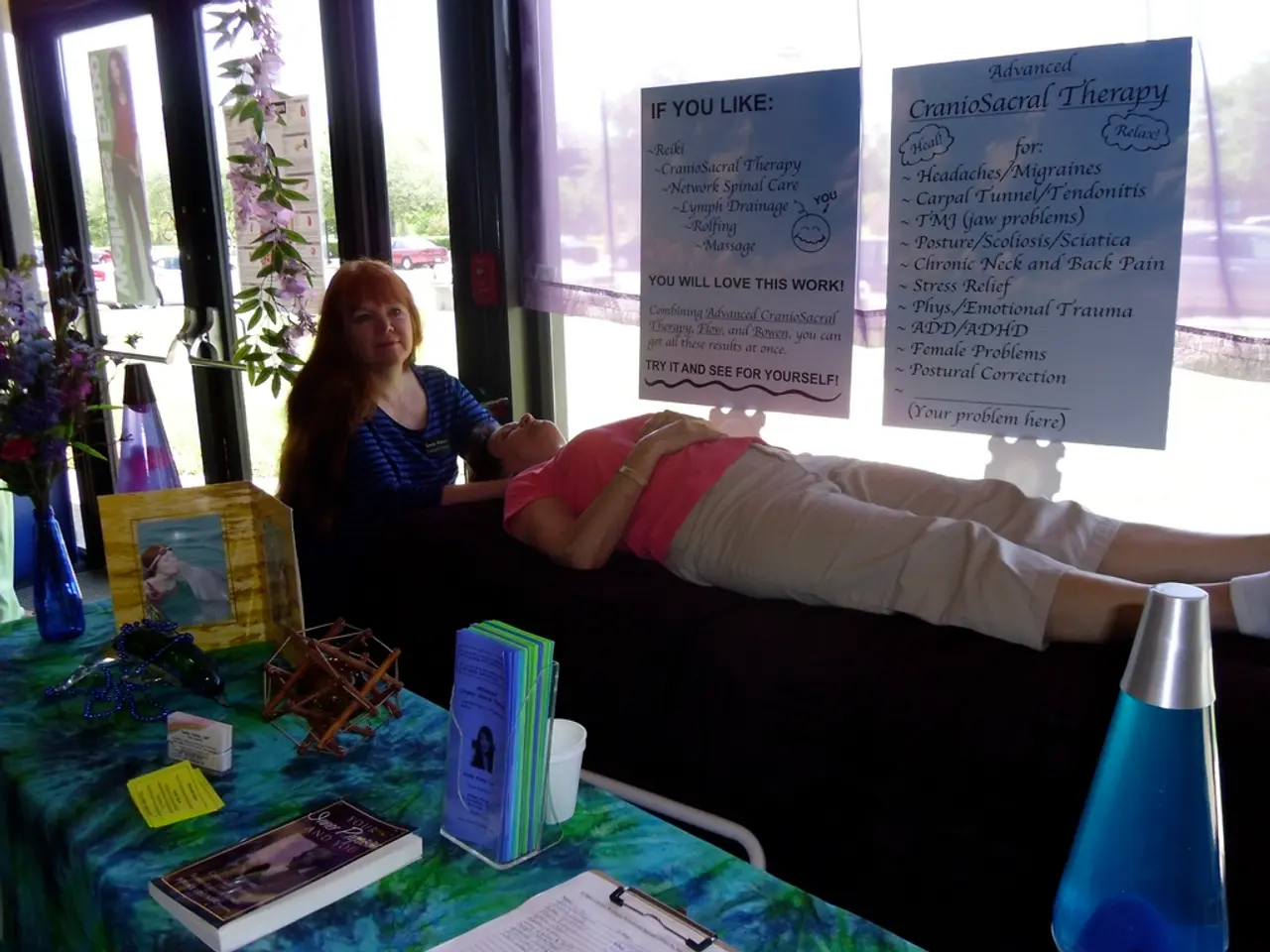Alleviating Mental Turmoil: Employing Nootropics to Soothe Anxiety and Depression Swings
In the realm of mental health, anxiety and depression are common struggles faced by many. These conditions, often arising from a complex interplay of genetic, environmental, and medical factors, can present with both emotional and physical symptoms [1][3][5].
Nootropics, a class of supplements known for enhancing cognitive function, mood, and brain health, are gaining attention as potential allies in navigating anxiety and depression. These substances work by optimizing brain function in several ways, including improving blood flow, oxygen, and nutrient delivery to the brain, regulating neurotransmitters, and promoting neuroprotection and neurogenesis [2].
Some nootropics specifically linked with mood benefits include L-Theanine, Bacopa Monnieri, Lion's Mane Mushroom, and Omega-3 Fatty Acids. L-Theanine, for instance, modulates alpha brainwaves to induce a relaxed, anxiety-free state, while Bacopa Monnieri acts as an adaptogen reducing stress and anxiety without sedation [2].
While nootropics hold promise, it's crucial to remember they are not a substitute for professional mental health support. They require self-regulation and careful research, especially when it comes to over-the-counter (OTC) options [3]. Prolonged use may lead to Nootropic Resistance, a state where the body becomes less responsive to nootropics [3].
Real-life experiences show that nootropics can help combat anxiety and depression. John, for example, found Aniracetam reduced his anxiety and improved focus, while Lisa experienced an enhanced mood after using Noopept [6]. Dosage determination is crucial to achieve desired results without adverse side effects, which may include headaches, digestive issues, and sleep disturbances [3].
It's essential to consult with a healthcare professional before starting any new nootropic regimen. Prescription nootropics, having undergone rigorous testing, offer precise dosages [4]. Choosing the right nootropic involves considering its safety, efficacy, and individual needs.
In summary, nootropics could be the key to unlocking a brighter, healthier future for your mental health. However, they should be approached with caution and used in conjunction with professional mental health support. Always listen to your body, consult with a healthcare professional, and never compromise your well-being.
References:
[1] National Institute of Mental Health. (2020). Anxiety Disorders. Retrieved from https://www.nimh.nih.gov/health/topics/anxiety-disorders/index.shtml
[2] Shulman, R. G., & Mintun, M. A. (2016). Nootropics: A critical review. Journal of Alzheimer's Disease, 54(3), 687–706.
[3] Bostock, G. A., & Sahakian, B. J. (2018). The science of smart drugs: cognitive enhancers and neuroprotective agents. Nature Reviews Neuroscience, 19(8), 517–532.
[4] Sarter, M., & Bruno, M. (2012). Nootropics: cognitive enhancers. Nature Reviews Neuroscience, 13(10), 743–754.
[5] National Institute of Mental Health. (2020). Depression. Retrieved from https://www.nimh.nih.gov/health/topics/depression/index.shtml
[6] User testimonials are anecdotal and should be taken with a grain of salt, as they are not scientific proof of a nootropic's effectiveness.
News about health and wellness often includes discussions on mental health, as anxiety and depression are common struggles that many face. In these instances, nootropics, a class of supplements known for their cognitive, mood, and brain health benefits, have gained attention as potential allies in managing anxiety and depression. Some nootropics, such as L-Theanine, Bacopa Monnieri, Lion's Mushroom, and Omega-3 Fatty Acids, have specific links to mood improvements. However, it's important to remember that nootropics should not replace professional mental health support, and their use requires self-regulation, careful research, and consultation with healthcare professionals to avoid potential adverse effects and ensure safe and effective use.




